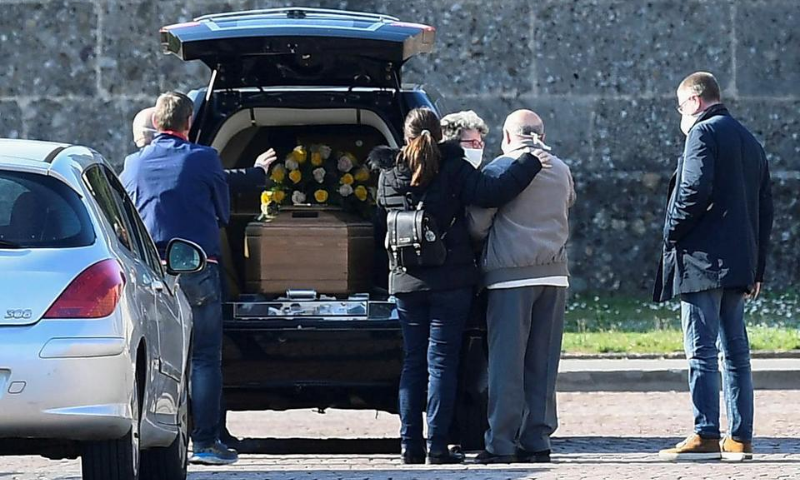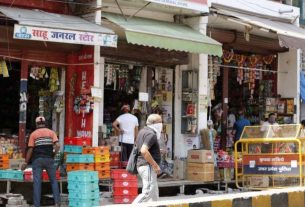PARIS: The global death toll from coronavirus has surpassed 800,000, with numerous countries ramping up restrictions in an effort to battle an eruption of new cases.
Western Europe, particularly Spain, Italy Germany and France, has been enduring infection levels not seen in many months, sparking fears of a fully-fledged second wave.
And in Asia, South Korea, which had largely brought the virus under control, became the latest country to announce it would boost restrictions to try to stem a new outbreak.
According to an AFP count on Saturday, the number of worldwide deaths has doubled to just over 800,000 since June 6, with 100,000 fatalities in the last 17 days alone, while more than 23 million cases have been registered.
Latin America is the region the most affected, while more than half the global fatalities have been reported in the hardest-hit United States, Brazil, Mexico and India.
Fears of fully-fledged second wave emerge
The surging numbers come after the UN health agency said on Friday that the world should be able to rein in the pandemic in less than two years.

World Health Organisation chief Tedros Adhanom Ghebreyesus sought to draw favourable comparisons with the flu pandemic of 1918 which cost the lives of as many as 50 million people.
“We have a disadvantage of globalisation, closeness, connectedness, but an advantage of better technology, so we hope to finish this pandemic before less than two years,” he said.
“(By) utilising the available tools to the maximum and hoping that we can have additional tools like vaccines, I think we can finish it in a shorter time than the 1918 flu.” The WHO also recommended children over 12 years old now use masks in the same situations as adults as the use of face coverings increases to stop the virus spread.
‘Very precarious stage’
With no usable vaccine yet available, the most prominent tool governments have at their disposal is to confine their populations or enforce social distancing.
South Korea announced ramped up restrictions on Saturday, after 332 new cases were reported in the past 24 hours — the highest daily figure since early March.
“We are at a very precarious stage where we could see the beginning of a nationwide second wave,” Health Minister Park Neung-hoo said at a press briefing.
The expanded measures include restrictions on gatherings and activities, including professional sports, which will be played behind closed doors again, while beaches nationwide will close.
‘Don’t feel invincible’
Italy — once the European epicentre of the virus — said on Saturday it had registered more than 1,000 new infections in the past 24 hours, the highest level since the end of a punishing lockdown in May.
The story is similar across Spain, Germany and France.
The Rome region also said it had recorded a record number of cases in the past 24 hours, a rise health officials blamed on people returning from holiday.
Most of those infected are young people who are not showing symptoms, the Italian capital’s health official Alessio D’Amato said, warning them to stay at home.
“Don’t feel invincible,” he urged them.
In Germany, a university launched a series of pop concerts under coronavirus conditions, hoping the mass experiment with 2,000 people can determine whether large events can safely resume.
‘Coronavirus catastrophe?’
Elsewhere, Lebanon launched two weeks of measures on Friday, including nighttime curfews, as the country is still dealing with the fallout from a huge explosion in Beirut that killed scores of people.
“What now? On top of this disaster, a coronavirus catastrophe?” said 55-year-old Roxane Moukarzel.
Officials fear Lebanon’s fragile health system would struggle to cope with a further spike in Covid-19 cases, especially after some hospitals near the port were damaged in the explosion.



